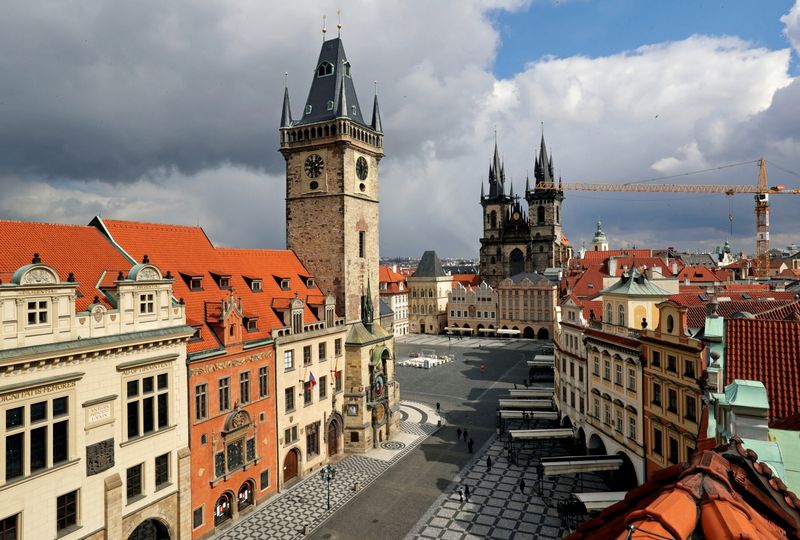PRAGUE (Reuters) – The Czech Republic will ban people who have not been vaccinated against COVID-19 from access to public events and services from Monday, Prime Minister Andrej Babis said on Wednesday, and negative tests will no longer be recognised.
The restrictions, to be approved by cabinet on Thursday, come after a spike in new infections to a record 22,479 on Tuesday.
Many European countries, including Czech neighbours Germany, Austria and Slovakia, have recorded spikes in infections and have started tightening curbs.
Slovakia reported a record number of cases on Wednesday, and Hungary and Poland had the highest numbers in more than six months.
“From that time (Monday) only vaccinations and having recovered from COVID will be recognised when it comes to services and public events,” Babis said.
“People have to finally believe that COVID kills.”
The Czech Republic, with a population of 10.7 million, has had to observe relatively light restrictions in the latest COVID-19 wave, with the government pledging no school closures or lockdowns.
The government has resisted tightening rules while in transition to a new administration, but the worsening situation in hospitals has made it consider restrictions on unvaccinated people.
Hospitals reported 4,425 coronavirus patients on Tuesday, fewer than half the record highs seen in March, and 661 people in intensive care, the Health Ministry said.
The country has recorded a total of 31,709 COVID-19 deaths, with the daily count mostly over 60 in the past days.
The Czech Republic’s vaccination rate has lagged those of other countries, with 57.6% of the population fully vaccinated versus an EU average of 64.9%, according to data from the European Centre for Disease Prevention and Control.
(Reporting by Jan Lopatka; Editing by Tom Hogue, Ana Nicolaci da Costa and Nick Macfie)

























